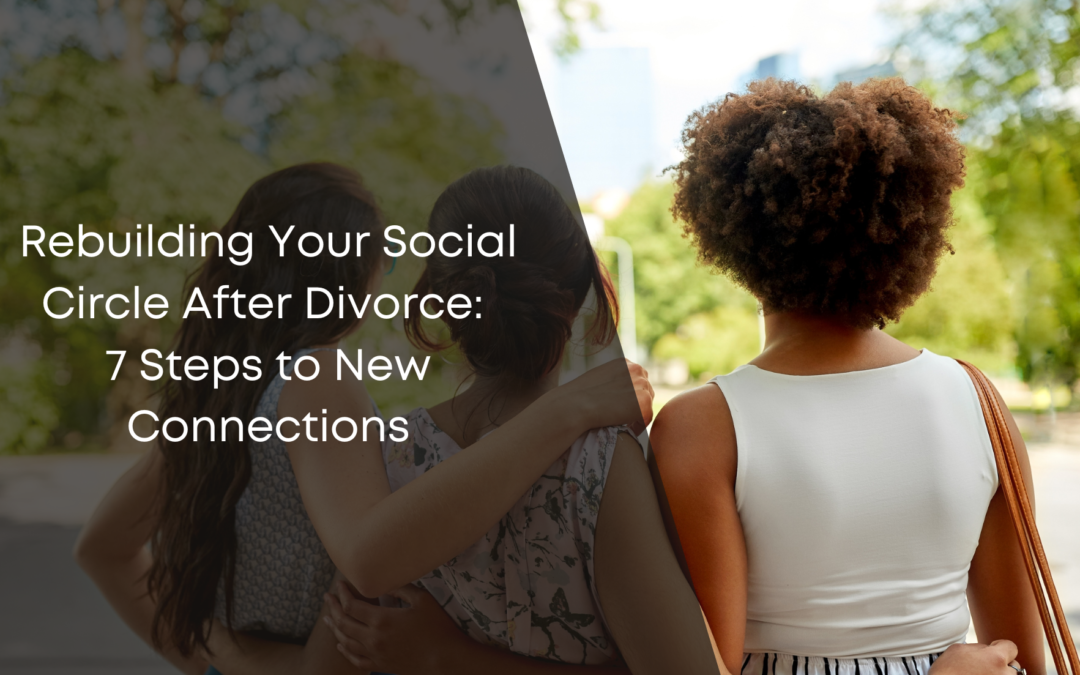Going through a divorce often feels like losing an entire support system. Friends you once shared with your spouse may seem distant, family ties might feel strained, and the routines that once filled your calendar are no longer there. You might even feel surrounded by people who don’t quite understand what you’re going through or how lonely this season can feel. But rebuilding a social circle that supports you, uplifts you, and truly understands you is possible—and it can be one of the most empowering steps you take in your healing journey.
7 Steps to New Connections
I’m Steven Unruh, a divorce mediator with over 30 years of experience. Through the years, I’ve seen how empowering it is for individuals to build fresh connections, finding people who offer genuine companionship and shared interests. I’ve also seen how divorce mediation can help create smoother transitions and a greater sense of closure. Here are seven practical steps to help you start rebuilding your social circle with confidence.
1. Start with Existing Relationships You Value
Before venturing out, consider the friends and family who’ve been supportive. They’re often eager to stay connected, but may feel uncertain about how to approach you. Reach out to a few close friends or family members who can anchor your circle while you rebuild.
- Tip: Schedule regular meet-ups or check-ins with those who truly understand you. Consistent connection helps you feel grounded.
2. Rediscover Personal Interests and Hobbies
During marriage, it’s easy to set aside your personal interests. Now is a perfect time to revisit old hobbies or discover new ones. Whether it’s joining a hiking group, taking a cooking class, or volunteering, activities centered around your passions can naturally lead to authentic friendships.
- Tip: Studies show that people who engage in hobbies feel a greater sense of fulfillment and connection, even with new acquaintances.
3. Seek Supportive Groups
Joining divorce support groups or clubs dedicated to individuals in transition provides understanding and empathy. Such groups create a space to share experiences, gain insights, and even form lasting friendships with people who truly “get” what you’re going through.
- Tip: Many local communities and online platforms offer support groups, often moderated by professionals to foster a safe and compassionate environment.
4. Focus on Reciprocal Friendships
When building new relationships, focus on mutual support rather than one-sided dependency. Look for people who are also open to new connections, and avoid placing unrealistic expectations on these new friends to fulfill all your social needs.
- Tip: Research shows that balanced, reciprocal friendships are more likely to thrive, bringing greater happiness and longevity to both parties involved.
5. Try Volunteering to Expand Your Network
Volunteering is a powerful way to meet people who value giving back, making it a natural way to create deeper connections based on shared compassion and purpose.
- Tip: Look for local volunteer events or causes that resonate with you. Volunteering doesn’t just help others—it strengthens your own sense of purpose and belonging.
6. Use Social Media Wisely
Social media can be both a blessing and a burden after divorce. Use it intentionally to connect with people and find supportive groups, but be mindful of how much you engage. Avoid comparing your life to the curated lives of others, and focus instead on using these platforms to foster genuine relationships.
- Tip: Follow groups or accounts that offer positivity, inspiration, and support for people moving forward after divorce.
7. Consider Professional Mediation for a Fresh Start
Divorce mediation is an effective way to find closure, helping both parties communicate better and transition smoothly. As you focus on healing, mediation offers a chance to resolve lingering conflicts, which can, in turn, ease social transitions by reducing the emotional baggage carried into new relationships.
Embrace Your New Chapter: Begin Building Your Social Circle Today
Many people worry that it’s too late to make new friends or that their previous social circle was “enough.” However, studies highlight that forming new connections is possible at any stage of life. Rebuilding is about finding people who resonate with your current season, not merely filling an empty space.
It’s time to step forward and build connections that align with who you are now. Rebuilding your social circle might feel overwhelming, but you don’t have to do it alone. If you’re ready to take the first step, consider reaching out for mediation support that can help clear emotional hurdles, paving the way for new friendships.
You’re not only rebuilding your social circle—you’re reclaiming your life on your terms. If you’re ready to move forward, contact me, Steven Unruh, to learn more about how mediation can help you on this journey.


Recent Comments